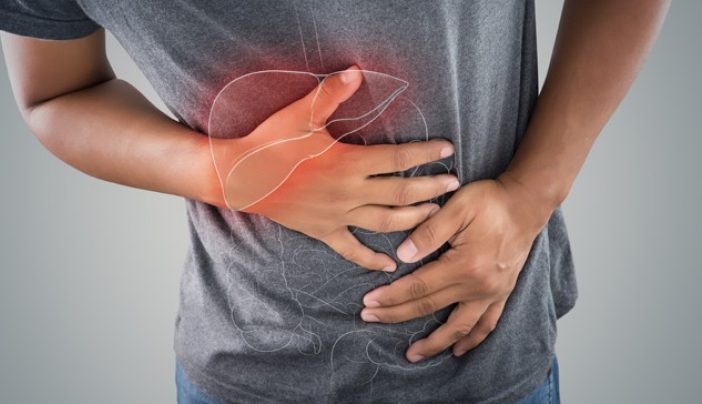Log in to our secure, personalized website to manage your care (formerly myMDAnderson).
If you are ready to make an appointment, select a button on the right. If you have questions about MD Anderson’s appointment process, our information page may be the best place to start.
Find information and resources for current and returning patients.
Learn about clinical trials at MD Anderson and search our database for open studies.
The Lyda Hill Cancer Prevention Center provides cancer risk assessment, screening and diagnostic services.
Your gift will help support our mission to end cancer and make a difference in the lives of our patients.
Our personalized portal helps you refer your patients and communicate with their MD Anderson care team.
As part of our mission to eliminate cancer, MD Anderson researchers conduct hundreds of clinical trials to test new treatments for both common and rare cancers.
Choose from 12 allied health programs at School of Health Professions.
View open postdoctoral and other research trainee positions.
Learn about our graduate medical education residency and fellowship opportunities.
June 19, 2024
BY Cynthia DeMarco
The most common symptoms of pancreatic cancer are pain in your abdomen or back, weight loss and jaundice.
But these issues can also be caused by other conditions, such as gallstones, hepatitis or even heavy drinking. So, when should you see a doctor about them?
“Most people with abdominal pain won’t have pancreatic cancer,” says pancreatic cancer surgeon Matthew Katz, M.D. “But any pain that persists beyond a couple of weeks should still get checked out. And, if you’re experiencing rapid weight loss without trying, you should mention it to your doctor as soon as you notice it. Anyone whose skin or eyes turn yellow should be evaluated immediately.”
Here’s how three of our patients knew they had pancreatic cancer, in their own words.
“I started having some middle-to-upper back pain over Christmas of 2022,” recalls Chief Patient Experience Officer Michael Frumovitz, M.D., who was 52 when he was diagnosed with stage III pancreatic cancer. “I took over-the-counter medications, but then I started experiencing stomach pain, too. It had a burning reflux quality to it, so I thought I’d given myself an ulcer from all the medication.”
“I had a little dull pain start just below my left breast in September of 2016,” adds Reneata Benjamin, a retired elementary school librarian who was 53 when she was diagnosed with stage III pancreatic cancer. “I was rubbing it so much that people started asking me what was wrong. Finally, my daughter told me I needed to see a doctor because it just kept getting worse.”
Sometimes, the combination of back and abdominal pain can make pancreatic cancer patients feel like there’s a belt of pain wrapped around their middle. “The classic presentation is to have abdominal pain that radiates to the back,” explains Katz.
Jaundice, or yellowing of the skin or eyes, is another telltale sign of pancreatic cancer.
“My wife noticed my skin turning yellow while putting calamine lotion on my back to soothe some itching,” remembers Steven Adami, a Wyoming rancher who was 62 when he was diagnosed with stage II pancreatic cancer. “I called the doctor, and he was so concerned that he told me to be at his office in an hour.”
Unintentional weight loss is a common symptom of many gastrointestinal cancers, including pancreatic cancer.
This weight loss could be due to:
All of these can limit a person’s appetite and ability to get enough nourishment.
If you experience rapid, unintentional weight loss, it’s important to tell your doctor. So, what counts as rapid weight loss?
“Losing 5% or more of your body weight in a month would be very concerning,” says Katz. “But losing anything over 10 pounds, even if it’s over an extended period, such as 3 to 6 months, should be investigated if it can’t be explained by a change in diet, activity level or medications.”
Other symptoms of pancreatic cancer include:
Unfortunately, pancreatic cancer doesn’t often produce symptoms in its earliest stages. So, by the time they start appearing, the disease is often advanced, when it’s harder to treat. That’s why Katz says you shouldn’t dismiss even vague symptoms.
“I can’t tell you the number of patients I’ve seen who had aches and pains or diarrhea for months and just didn’t think it was worth mentioning to their doctor,” Katz says. “Don’t dismiss these symptoms, particularly if they’re persistent or in the elderly. While they may turn out to be caused by something other than pancreatic cancer, they’re worth evaluating.”
Request an appointment at MD Anderson online or call 1-877-632-6789.
Non-specific symptoms should not be dismissed.
Matthew Katz, M.D.
Physician
Our patients depend on blood and platelet donations.
Show your support for our mission through branded merchandise.
© 2024 The University of Texas MD Anderson Cancer Center
